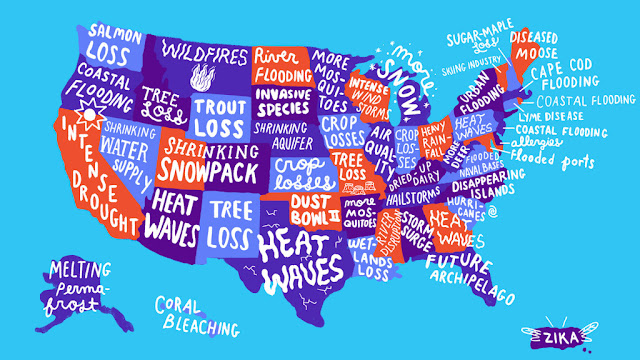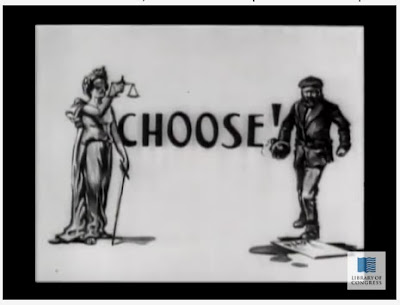For this descendant of Cuban-Americans and product of Harvard, the United States of 1999 is his reference year. He strives, thoughtfully, to interpret current realities through that lens. For someone like me who believes that engaged political struggle -- inside and/or outside the existing frame -- is how a human society fulfills itself, Yglesias' picture seems all too bland ... and yet, we, the political obsessives, need to honor that other human impulse simply to be allowed to live.I’ve always loved politics. I used a dial-up internet connection to debate issues on Prodigy. I spent two weeks of the summer of 1998 in the dorms at American University at a weird camp for teenage politics dorks. In 1999, I got to college and the watchword of the day among people interested in politics was apathy. Why were kids so apathetic these days? Why didn’t they care?
The answer, in retrospect, is that the politics of the late 1990s were really boring and only a ridiculous politics dork would be interested in them. Yes, there was a shocking sex scandal. But mostly you had aides from opposing parties huddled in room talking about pay-fors and offsets and S-CHIP expansion. A normal, sensible person could take for granted that the country was going to basically function from one day to the next in a non-catastrophic manner and move on with the problems in their lives.
That all changed on 9/11. ... [But now] what America needs is someone to keep it on track. ... To try to make sure nothing too interesting happens, and that men and women across this great land of ours can afford to go back to not really caring about what happens in Washington. ... it sounds like a job for Hillary Clinton.
My political baseline year remains 1968. Although we've seen horrors in plenty, nothing since has quite compared for apocalyptic, painful, and hopeful potential. Having been there, immersed in politics of several sorts, I've put in a lifetime of looking for the sort of radical break in conventional constraints on freedom and justice that I once took to be a norm. I sure was disappointed, for a long time.
Oddly, or perhaps tellingly, a cursory internet search doesn't tell how old Jamelle Bouie, chief political correspondent for Slate Magazine and a political analyst for CBS News, might be. But he's not an oldster or a youngster, I don't think. Somewhere in the middle generation, I think. But he's certainly well placed to see something that to me looks new, something we old ones have trouble imagining. And this something, with luck and struggle, the truly young will take for granted. Writing from the Democratic National Convention:
Now that's new -- and old -- because it locates leadership where it belongs, among people whose history has painfully molded them to carry us all forward. Yes indeed, I still think 1968 was a very good year.Look at Thursday’s events again and you’ll see the qualities that made the convention a distinctly Democratic [Party] affair. In this celebration of American strength and greatness, the faces were overwhelmingly black and brown. ... From Monday to Thursday, each night of the Democratic National Convention was marked by incredible diversity, represented by a wide array of colors and creeds. They weren’t just voices of normalcy—people who represent the extent to which Democrats have claimed the mantle of “normal” America, where normal includes nonwhites, unauthorized immigrants, and the LGBTQ community. They were also voices for optimism.
... Despite deep problems of discrimination and racial inequality, it’s nonwhites—blacks, Hispanics, and other groups—who have the most optimistic view of the United States and its future. For them, the country is closer than not to its self-conception as a city on the hill, and for good reason. If you’re black, if you’re Latino, if you’re gay—life is unquestionably better now than it was in the past.
... pay attention to the tenor of this optimism, to the rhythms of its expression. It isn’t the self-satisfaction of Reagan, champion of the status quo. It is hard-won hope, an optimism born of struggle. It’s the “Mothers of the Movement,” whose grief fuels hopeful activism. “We’re going to keep telling our children’s stories and urging you to say their names,” said Lucia McBath, mother of Jordan Davis, who was slain in 2012. “We’re going to keep building a future where police officers and communities of color work together in mutual respect to keep children, like Jordan, safe.” It’s the difference between Reagan’s eternal lights “in this springtime of hope” and Maya Angelou’s “still I rise,” one of the refrains of this week.
... Grounding themselves in an optimism born of struggle, Democrats are asking those people to continue the struggle for equality, the fight to make a “more perfect union.” To turn back Trump and assert the dignity of all Americans, hopeful that with hard work, the problems of today will give way to better prospects and a better future.


















































